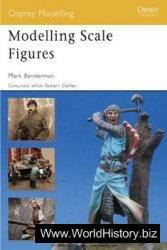One of the major ancient Mesopotamian myths and epic poems, describing the primeval battle between cosmic order and chaos and celebrating the rise to power of Marduk, chief god of Babylonian civilization. The work was known as the Enuma Elish in ancient times, a title derived from its opening words, which translate as “when on high.” The Epic of Creation was recited aloud in public each year on the fourth day of the Babylonian New Year’s festival. It is based on an earlier Sumerian epic that tells basically the same story, only features Sumerian gods such as An, Enlil, and Nammu, while the Babylonian version stars the local Babylonian deities Anu, Marduk, and Tiamat. The Babylonian version, consisting of about a thousand lines on seven cuneiform tablets, dates from the twelfth century b. c. and was found in the library of the Assyrian king Ashurbanipal at Nineveh. The great Assyriologist George Smith published the first translation in 1876, and people immediately noted similarities between the Enuma Elish and the creation story in the old Testament’s book of Genesis. Indeed, although there are numerous differences between the two, the similarities are enough to prove that Genesis was at least partly based on the Babylonian myth. One of the main differences in the two works is that Genesis places a heavy emphasis on the creation of humans by God; whereas the Enuma Elish deals with human origins only in passing. This illustrates how the ancient Mesopotamians viewed humanity—as only an inferior species, completely dependent on and subject to the power and will of the gods.
The Epic of Creation begins with three gods—Apsu (a version of Enki), lord of subterranean waters; Mammu, Apsu’s adviser; and Tiamat, goddess of saltwater.
Apsu and Tiamat mate and produce a deity named Anshar, who in turn gives rise to Anu, god of the sky. Many other gods are created, too, and they become so noisy that Apsu considers killing them all. But Ea, a son of Anu, objects to Apsu’s murderous plan and overthrows Apsu. Ea then has a son—the glorious Marduk. Meanwhile, Tiamat wants to get revenge on Ea for his rebellion, so she creates several hideous monsters, led by Kingu, who is given control of the Tablet of Destiny, on which is written the fates of the gods and the humans.
Ea eventually finds out what Tiamat is up to and tells his grandfather Anshar about her army of frightening creatures:
Sharp of tooth, unsparing of fang, with venom for blood she has filled their bodies. Roaring dragons she has clothed with terror, has crowned them with haloes, making them like gods, so that he who beholds them is overcome by terror. Their bodies rear up and none can withstand their attack.
She has set up the Viper, the Dragon, and the Sphinx, the Great-Lion, the Mad-Dog, and the Scorpion-Man, mighty lion-demons, the Dragon-Fly, the Centaur—[all] bearing weapons that spare not, fearless in battle. (Enuma Elish 2.21-30)
Ea himself feels he lacks the strength to destroy these villains. So he calls on his son Marduk to fight Kingu and his evil minions. The gods still loyal to Ea then meet and give supreme authority to Mar-duk, making him king of the universe. After that Marduk dons his armor and goes out to face Tiamat, Kingu, and the monsters. The latter are terrified at the very sight of mighty Marduk and retreat, which greatly angers Tiamat. She charges forward and engages Marduk in single combat.
After slaying Tiamat, Marduk captures Kingu, takes from him the Tablet of Destiny, and finally slices Tiamat’s lifeless body in half and uses the top half to create the sky. Marduk next places the stars in the sky, establishes the phases of the Moon, and sets the seasons in motion. After executing the evil Kingu, Marduk uses the creature’s blood to fashion humanity. “I will take blood and fashion bone,” Marduk says. “I will establish a savage. ‘Man’ shall be his name. Truly, savage-man I will create. He shall be charged with the service of the gods, that they might be at ease!” (Enuma Elish 6.5-9) After witnessing this ambitious bout of creation, the other gods applaud Marduk, sing his praises, and promise to be loyal to him.
See Also: Bible; Marduk; Smith, George




 World History
World History









